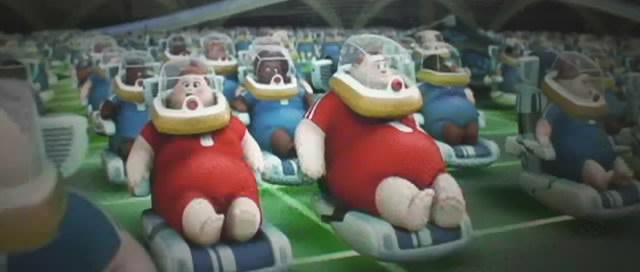I recently read Ford's book as well. He does a very good job of showing how this time really is different. The economy was able to adjust and make jobs for people displaced by manufacturing equipment in the past, but now that robots have gained the ability to read, interpret images, move around in physical environments based on sensory data, write sensible text, look up appropriate information from massive databases, etc., even most of the service jobs that were created in response to the decline of employment in manufacturing are at serious risk. Because most jobs are funamentally routine and repetitive, automation now threatens most jobs. Further, the relentless progress of Moore's Law has led to automation becoming competitive with even poorly-paid workers abroad and in industries like fast food. Increasing the level of education in the population seems to have just triggered an arms race of credentialism rather than driving down long-term unemployment in the population as a whole.
It's physically possible for society to respond to this by letting everyone work fewer hours for the same pay, guaranteeing a reasonable minimum income to people whether they're employed or not, and the like. But of course this isn't how capitalism works: instead, those who own the increasingly productive capital make large sums of money while anybody left unemployed is left to suffer, and lower prices for consumer goods doesn't do much to make their lives easier. And there doesn't seem to be any sign that this situation will be responded to by strengthening the welfare state: overall, social welfare programs are being weakened rather than strengthened. Ford doesn't really seem to have a solution other than advocating a guaranteed minimum income and the like, but while I agree, I don't see any political will for this at all.
 My bad, I started reading the sentence & went into autopilot "So it's not that the machines would be our slaves, it's that..."
My bad, I started reading the sentence & went into autopilot "So it's not that the machines would be our slaves, it's that..."


